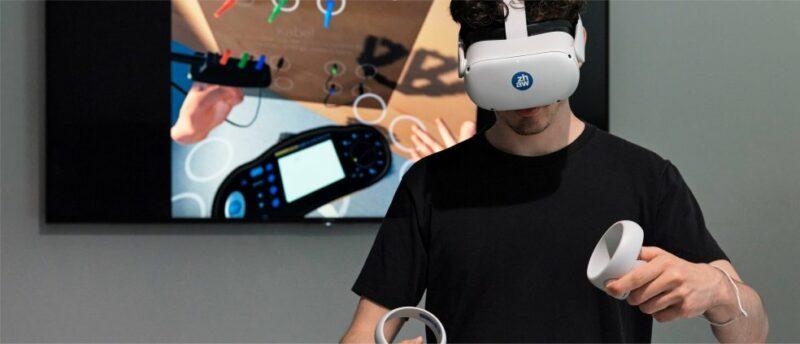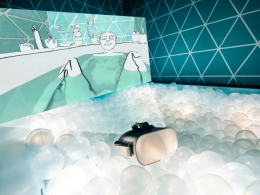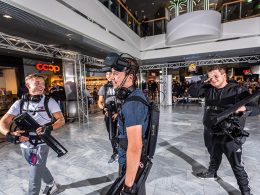A recent study by the ZHAW and PH Zurich shows that virtual learning environments in vocational training are very promising. Apprentices from the electrical industry also used virtual reality software to prepare for their final exams and were able to improve their grades by one grade.
For many training companies, it is difficult to provide vocational trainees with sufficient situations in which they can learn and practise the intended professional activities. Enriching in-company training with technology-supported worlds of experience based on virtual reality (VR) is therefore very promising. However, VR is hardly used systematically in in-company training, which can be attributed to a lack of experience and research, among other things. For this reason, a VR learning environment for prospective electricians was developed and tested in a joint project between the ZHAW and the PH Zurich. The technical expertise was provided by the practical partners Bandara, BKW Building Solutions, the Effretikon Electrical Training Centre and the professional association EIT.swiss. The project was funded by the digitalisation initiative of the Zurich universities (DIZH).
A school grade better thanks to virtual reality
For the project, the ZHAW developed a prototype VR learning environment that allows learners to practise testing an electrical installation in a virtual garage using VR glasses. The didactic concept was contributed by the PH Zurich. "We know that learners are often very challenged in complex technical processes - whether real or virtual - and are dependent on structured support. That's why we have enriched the VR simulation with a help and question system as well as game elements to make it an effective VR learning environment," explains educational scientist Martin Berger from the PH Zurich.
In a field study, the performance of 68 Swiss assembly electricians and electricians in their final year of training was compared before and after their exam preparation: 35 trainees used virtual reality to prepare for the practical exam, while the other 33 trainees prepared using traditional learning methods. It turned out that the assembly electricians in particular benefited from the VR solution. They were able to improve by almost a whole grade in the final exam compared to the apprentices without VR. "We were very pleased with the result and it underlines the potential of VR to improve equal opportunities in basic vocational training," summarises co-project manager Thomas Keller from the ZHAW School of Management and Law.
Enrichment of in-company training
VR enables learners to learn and experiment with various challenging or even potentially dangerous practical activities anytime and anywhere. It is important for those responsible for the programme to emphasise that VR should by no means replace practical training and contact with instructors. "We see virtual reality solutions as a valuable addition to basic vocational training. The results of the project indicate that didactically sound virtual experience and learning spaces can support in-company learning and be effective in building professional competences," says co-project manager Elke Brucker-Kley from the ZHAW School of Management and Law. The prototype of the VR learning environment is currently being further developed by the company Bandara for the more than 300 apprentices of the Bauman-Kölliker Group.
Source: Media release








